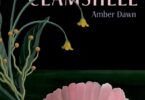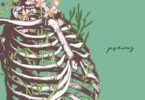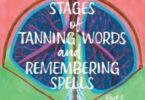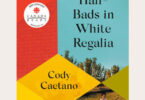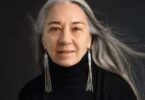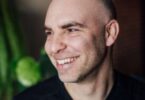Interview by L’Amour Lisik
In connection with the annual Victoria Festival of Authors taking place October 16 to 20, 2024, Plenitude prose editor L’Amour Lisik interviews Leanne Dunic, whose latest poetry collection, Wet, was released in Spring 2024 with Talonbooks. Leanne Dunic transgresses genres and form to produce projects such as One and Half of You (Talonbooks, 2021), To Love the Coming End (Book*hug/Chin Music Press, 2017), and The Gift (Book*hug, 2019).
In Wet, a transient Chinese American model working in Singapore thirsts for the unattainable: labour rights, the extinguishing of forest fires, breathable air, healthy habitats for animals, human connection. In photographs and language shot through with empathy and desire, Wet unravels complexities of social stratification, sexual privation, and environmental catastrophe.
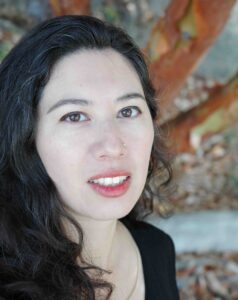 You specialize in projects that blur the boundaries between prose, poetry, music, and photographs. What draws you to combining your art practices? Who or what inspires your cross-genre work?
You specialize in projects that blur the boundaries between prose, poetry, music, and photographs. What draws you to combining your art practices? Who or what inspires your cross-genre work?
I’m not sure what draws me per se; it’s a natural instinct. I want my books to be fluid, adaptive, and porous. If anything inspires my work, that would be amphibious creatures. They’re often described as an indicator species as their sensitivities signal shifts in the environment. I have no choice but to do the same through my own observations + imagination = book.
The Chinese American main character of your new novel-in-verse-and-photographs, Wet, occupies a liminal space as she navigates work and relationships in Singapore. This theme of liminality also runs through your 2021 memoir-in-verse, One and Half of You. Can you talk a bit about diaspora, peripheral spaces, and belonging through the lens of both your novel and your memoir?
I don’t think I can escape that liminality if I tried. We’re all between things, whether we have identified those things or not. Being of mixed race has definitely influenced my experience in the world, not feeling like I truly belong in any community. The only way for me to be is to build my own space, and that space happens to straddle worlds.
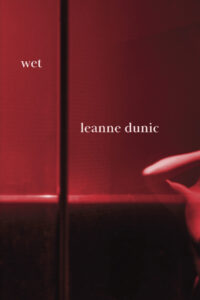 As Wet progresses, Singapore itself emerges as its own character—its people, animals, public transportation, and construction sites remain a constant background buzz. Can you tell us more about why you chose Singapore as a setting, and how you went about translating city onto page?
As Wet progresses, Singapore itself emerges as its own character—its people, animals, public transportation, and construction sites remain a constant background buzz. Can you tell us more about why you chose Singapore as a setting, and how you went about translating city onto page?
If it weren’t for Singapore, the book wouldn’t exist. It’s a complex place that has captivated and upset me. I happened to be on a residency at the tail end of the SE Asia haze in 2015, and this book was birthed from that experience. I kept notes in a pocket notebook which were very useful in compiling this narrative.
At one point in the novel, we learn “I remember being / on a trip with my ex. / […] He was asleep in my arms / and still / I was empty.” There’s a distinct sense of loneliness, compounded by the photos featuring empty urban landscapes, lifeless figurines, and occasionally people, their faces obscured by shadows, masks, or distance—a juxtaposition between how the narrator feels and the bustling city-state she lives in. How did you go about taking and choosing the photos to include in this project? What was the process for arranging them amongst the poems?
I’m glad that loneliness came through. I think the idea of loneliness as a consequence of climate disaster is often overlooked. If folks didn’t have to quarantine, or stay indoors due to extreme weather, I’d like to think we’d be connecting. I went to Singapore after a seven-year absence, only to arrive with Covid for the first time, and so I was isolated for nearly two weeks—very similar to the character in Wet. The cover is a photo I took in the hotel bathroom while isolating. I took the rest of the photos in the two days that I was no longer testing positive. It was very hard to narrow down and curate the sequences, but I’m happy with the arrangements.
The title Wet functions as both a nod to desire and sexuality as well as to the realities of the pyrocene. These are two of many themes in the novel, including gender, ethnicity, class, and privilege. What led you to explore these seemingly disparate subjects within a novel? How can writers approach their writing and reading with an intersectional perspective?
All of these things are connected, and it seems to me impossible to separate them from one another. But this is only a moment through my lens and imagination, and I guess a desire for equality and environmental concern is just part of my aesthetic.
When you begin a project, do you have a set idea of its end form, or does it emerge naturally? Do you have any new projects in the works?
I surrender to the content and process. If I have an idea for the end form, the process likes to prove me wrong. I do have a new something that is too nascent to speak about quite yet, but it may become a more intense sister to Wet.
I’m excited to learn more about you through this year’s Victoria Festival of Authors! Can you tell us more about your panel? Are there any other panels or festival events that you’re looking forward to attending?
The VFA program isn’t out yet, so I can’t say what I’ll attend. The event I’m a part of will be a reading and discussion about creating transgressive and transformative works, and also features Jody Chan, Zehra Naqvi, and Jaz Papadopoulos, hosted by Melanie Siebert. I’m looking forward to participating in an event in my hometown and with these other exciting writers.
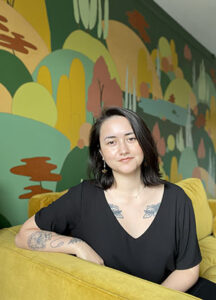 L’Amour Lisik (she/her) is a queer writer and artist of Chinese Mauritian/Scottish settler descent who lives on the unceded traditional territories of the Lekwungen and W̱SÁNEĆ Peoples (Victoria, BC). She holds a BFA in Writing from the University of Victoria, where she focused on poetry and creative nonfiction. L’Amour also works as Managing Editor for The Malahat Review.
L’Amour Lisik (she/her) is a queer writer and artist of Chinese Mauritian/Scottish settler descent who lives on the unceded traditional territories of the Lekwungen and W̱SÁNEĆ Peoples (Victoria, BC). She holds a BFA in Writing from the University of Victoria, where she focused on poetry and creative nonfiction. L’Amour also works as Managing Editor for The Malahat Review.

